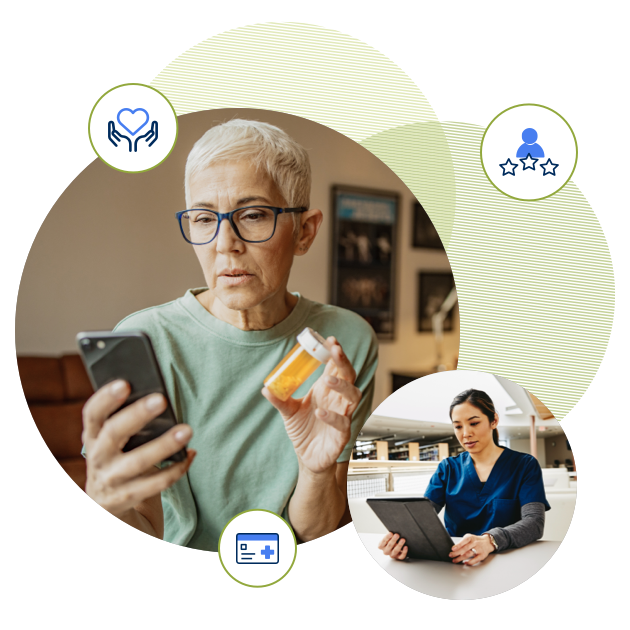Premenstrual syndrome treatment online
Get relief from premenstrual syndrome with an online diagnosis, treatment plan, and electronically filled prescriptions from board-certified physicians 24/7.
PMS symptoms can vary, but patients typically experience:
- Mood swings
- Joint or muscle pain
- Food cravings
- Fatigue and/or insomnia
- Irritability or depression
- Headaches
- Acne flare ups
- And more.
Diagnosing and Treating Premenstrual Syndrome Online
It is estimated that roughly 75% of menstruating women have experienced some form of premenstrual syndrome, more commonly referred to by its acronym, PMS. Those who experience PMS find it occurs regularly and in a predictable pattern. For some women, symptoms can be so predictable that they can even gauge when they will menstruate based on when the symptoms occur.
The physical and emotional issues women experience with premenstrual syndrome may vary from just slightly noticeable to intense; however, you do not have to let these difficulties control your life. Treatments and lifestyle adjustments can help you reduce or manage the signs and symptoms of PMS. You and your online provider can help determine the severity of your PMS, what type of treatment is best for you, or if a referral to an in-person provider is required.
During a video consult on Amwell, one of our board-certified clinicians will ask you a series of targeted questions to determine the severity of your PMS. If you have any externally visible physical symptoms of PMS, such as acne – our video capabilities allow you to bring your phone, tablet or desktop close to these signs, so your provider can get a clear view. Your diagnosis will be based on the video exam, duration, severity of symptoms, and your medical history.
Once you’ve discussed your symptoms, your provider will go over the risks and benefits of the various treatment plans. Treatment for PMS varies patient-to-patient depending on the severity, but a consistent monthly treatment routine can help you manage and weather its symptoms. Such a routine can be difficult for adolescent and teenage women, so follow-up visits, especially in the beginning of treatment, will be important.
Options for treatment of PMS vary and may include some combination of medications and lifestyle modifications including:
Lifestyle Modifications
- Exercise
- Emotional support
- Reduced intake of salt, refined sugar, alcohol and caffeine
- Smoking cessation
Medications:
- Diuretics: These increase the rate of urine production, thereby eliminating excess fluid from the body tissues. There are several nonprescription (including Diurex PMS, Midol PMS, Pamprin Multisymptom, and Premsyn PMS) and prescription (e.g., Spironolactone, Aldactone) options.
- Analgesics (pain killers): These are commonly given for menstrual cramps, headaches, and pelvic discomfort. The most effective group are nonsteroidal anti-inflammatory drugs (NSAIDs) such as ibuprofen (e.g., Advil, Motrin), naproxen (e.g., Aleve, Anaprox), and mefenamic acid (Ponstel).
- Oral contraceptive pills (OCPs): Newer OCPs, with their improved hormonal formulations may alleviate some of the symptoms of PMS for many women. OCPs containing the progestin drospirenone have even been approved by the FDA for the treatment of PMS, as well as and premenstrual dysphoric disorder (PMDD).
- Ovarian suppressors: Drugs like danazol (Danocrine) have been prescribed to suppress ovarian hormone production, but cannot be used over long periods because of side effects.
- Antidepressants: These are widely used in treating the mood disturbances related to PMS because of their ability to stabilize brain chemical (norepinephrine, serotonin, and dopamine) levels that are affected by the ovarian hormones. Selective serotonin reuptake inhibitor (SSRI) antidepressants have the best data on their effectiveness in treating symptoms of PMS, and some are FDA approved for short term use for this.

Women's Health